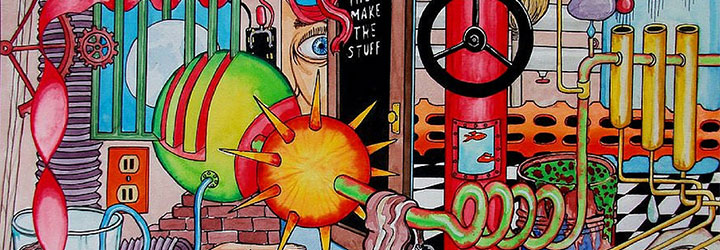Science Studies Hour: An Interdisciplinary Workshop
The Science Studies hour workshop is an experimental forum for faculty, researchers and graduate students across disciplines and colleges to develop new ideas and collaborate on issues of concern around science, technology and society. Science Studies Hour alternates between four modes of operation: informal discussion of common issues of concern; formal discussion of members’ work in progress; conversations and workshops around work by invited guests; and field trips to laboratories across campus.
In 2016-17, the workgroup will expand and develop the most successful aspects of its program and will also deepen the commitment to fostering STS work in progress at UCR. The quarterly Outside Workshop Invitation will bring a senior outside scholar to participate in the workshop and offer comments on the draft chapter or article under discussion.
In addition, the group plans to hold a public series of seminars on STS Methods. Science and Technology Studies (STS) scholars over the past twenty years have developed new methods to grasp complex socio-technical systems. Accordingly, the workgroup has planned a series of public talks by UCR faculty and invited scholars on walking, play, storytelling, mapping, drawing, and hacking as research methods. This series is organized by Kyle Harp Rushing (PhD candidate, Anthropology) and is designed, in part, to explore useful methodologies for the benefit of graduate students.
Organizers
Dana Simmons, History
Chikako Takeshita, Gender and Sexuality Studies
Sherryl Vint, English
David Lo, School of Medicine
Norm Ellstrand, Botany
Maile Arvin, Ethnic Studies
Susan Zeiger, English
Drew Story, Engineering
Kyle Harp, Anthropology
Stina Atteberry, English
More details at sts.ucr.edu
